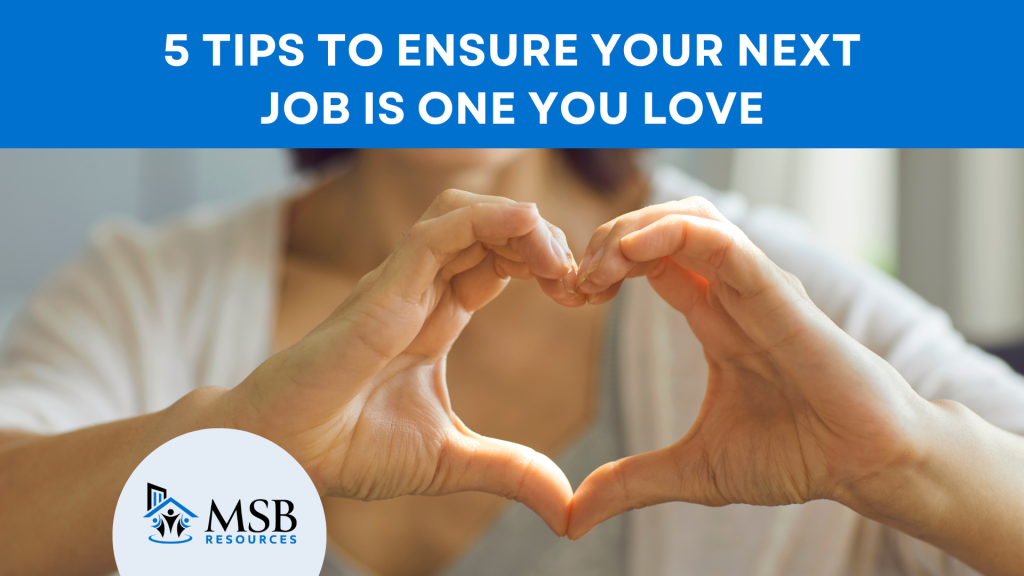In the spirit of Valentine’s Day, let’s discuss a relationship you spend more time with than any other—your job. With the average American dedicating 90,000 hours of their life to work, finding the right professional match is just as crucial as finding the right romantic partner. Like any meaningful relationship, your ideal job requires knowing exactly what you want, asking the right questions, and being alert to potential red flags along the way.
Just as you wouldn’t rush into a serious relationship without ensuring compatibility, your next career move deserves the same consideration. The perfect job should align with your career aspirations and personal values, creating a partnership that benefits you and your employer. In this guide, we’ll explore five essential strategies to help you find a role you’ll love, turning your job search from speed dating to a meaningful match.
1. Define Your Must-Haves Before Starting Your Search
Setting up your job search criteria is much like creating a dating profile – you need to be crystal clear about what you’re looking for in your next match. Start by defining your core requirements:
- What’s your minimum acceptable salary to maintain your lifestyle?
- How much schedule flexibility do you need to maintain a work-life balance?
- Are you looking for a remote relationship or prefer to go to the office?
- What kind of growth potential will keep you engaged and committed for the long term?
Like any good relationship counselor would advise, learning from your past professional relationships is essential. Take time to analyze your work history honestly: Which roles felt like a perfect match and why? What situations ultimately led to parting ways? With 43% of employees citing toxic work culture as their reason for leaving, it’s crucial to identify any red flags you might have missed and consider what you’d do differently in your next role. These insights will help you make a more informed choice in your next professional partnership.
2. Read Between the Lines in Job Descriptions
When it comes to job hunting, reading a job description is like decoding a dating profile – you need to understand what’s really being said. Here are some common phrases and their real-world translations:
- “Fast-paced environment” typically means the workplace is understaffed
- “Wear many hats” suggests unclear role boundaries and potential overwork
- “Work hard, play hard” often indicates poor work-life balance
- “Competitive salary” usually means they’d rather not disclose the pay range upfront
Just like a promising dating profile, a good job posting should show signs of a healthy potential match. Look for descriptions that offer transparency about role expectations and concrete details about growth opportunities. The best listings will clearly outline their benefits and perks and openly share company values. When an employer is upfront about these elements from the start, it’s often a sign they value honest communication and employee satisfaction – essential ingredients for a lasting professional relationship.
Pro Tip: Copy the job description into a document before applying. Many companies remove postings after filling roles, so you should reference them during interview prep and salary negotiations.

3. Turn Your Interview into a Two-Way Conversation
A job interview should be more than just answering standard questions like any promising first date. Prepare strategic questions that demonstrate your interest while helping you evaluate the potential fit. Ask about team dynamics and how collaboration typically works. Get clear on management style and day-to-day expectations. Most importantly, explore opportunities for advancement – after all, you want to know there’s potential for this relationship to grow.
Pay attention to their communication style during these exchanges—it’s like picking up on someone’s love language. How do they respond when you ask questions? Are they giving transparent answers or staying vague? Watch for signs of genuine engagement in your career goals rather than simply going through the motions with scripted responses. These subtle cues can reveal volumes about the company culture and whether this could be a lasting professional match.
4. Become a Company Research Detective
Wise daters look beyond the profile page, and savvy job seekers should look beyond the company website. Check employee reviews and ratings, research recent news and press releases, and review their social media presence. Look for awards or recognition that speak to their reputation and culture. These background checks can reveal valuable insights about your potential match.
Pay attention to how the company presents itself on LinkedIn and other professional platforms. Study their values and mission, and notice how they engage with their community. Like checking out a potential date’s friend circle, these observations can tell you whether their actions match their words and their culture aligns with your expectations.
Pro Tip: Look at both positive and negative reviews online. What some employees list as cons might be pros for you (e.g., “fast-paced environment” or “lots of collaboration”).
5. Trust Your Gut During the Final Decision
Those interview butterflies tell you a lot – pay attention to how you feel during and after each conversation. Were you genuinely excited or just anxiously hoping it would work out? Notice how naturally the discussions flowed with potential teammates and whether you could picture yourself as part of their culture. The right job should give you a sense of possibility and potential, not just relief at finding an offer.
Take time to evaluate long-term compatibility before saying “yes.” Consider whether the role aligns with your career goals and offers the growth opportunities you seek. Ask yourself if you felt energized or drained during the interview and whether you can genuinely see yourself being happy in this position. Remember that finding the right job is about mutual fit—don’t let the pressure to accept make you overlook your instincts.
Pro Tip: Make a list of pros and cons right after each interview while your feelings are fresh – these initial reactions are often the most honest.
Bonus Love Lesson: Sometimes It’s Not a Match
Just like in dating, sometimes you need to gracefully decline a potential match. When an opportunity isn’t right for you, share that information promptly and professionally. Call or send a thoughtful email thanking the team for their time to keep the door open for future connections. In today’s interconnected business world, how you handle these moments can impact your professional reputation.
Final Thoughts: Finding Your Perfect Professional Match
Finding the right job match, like any good relationship, takes time and patience. It also requires knowing your worth and not settling for less than you deserve. Your skills and experience are valuable in today’s market, and the perfect role is worth waiting for. With 90,000 hours of your life dedicated to your career, making sure it’s a job you love isn’t just a luxury—it’s a necessity.
Remember that the right opportunity will feel exciting, not just relieving. Trust in your value, know that it’s okay to say “no” to the wrong match, and stay patient – the perfect professional relationship is worth the wait when it aligns with both your skills and aspirations.
Ready to find your perfect job match? Visit our Get Hired page to start your journey toward your dream role.


